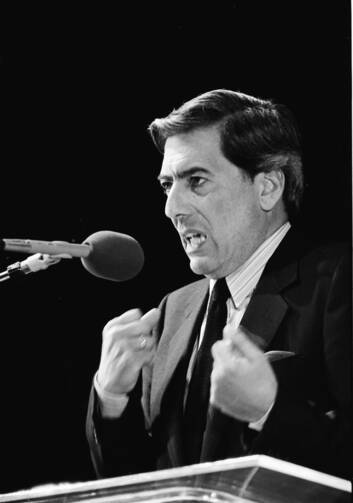With the new academic year underway, I thought it time to dust off and share one of my favorite essays of all time.
About ten years ago, in a "best of" collection, I came across the essay "Why Literature?" by Peruvian author Mario Vargas Llosa (recipient of the 2010 Nobel Prize in Literature). I was preparing to teach high school English and needed an anchoring text, something that would frame the importance of the novels and short stories I would assign. I needed to justify what I would teach.
Vargas Llosa's work was just the right resource.
His essay begins by addressing the "widespread conception" that "literature is a dispensable activity, no doubt lofty and useful for cultivating sensitivity and good manners, but essentially an entertainment, an adornment that only people with time for recreation can afford." According to this (too popular) view, said Vargas Llosa, literature "is something to fit in between sports, the movies, a game of bridge or chess; and it can be sacrificed without scruple when one 'prioritizes' the tasks and the duties that are indispensable in the struggle of life."
With that understanding, needless to say, Vargas Llos vehemently disagreed, and he went on to craft a marvelous defense of the need to read good works often. A snippet:
In our time, science and technology cannot play an integrating role, precisely because of the infinite richness of knowledge and the speed of its evolution, which have led to specialization and its obscurities. But literature has been, and will continue to be, as long as it exists, one of the common denominators of human experience through which human beings may recognize themselves and converse with each other, no matter how different their professions, their life plans, their geographical and cultural locations, their personal circumstances. It has enabled individuals, in all the particularities of their lives, to transcend history: as readers of Cervantes, Shakespeare, Dante, and Tolstoy, we understand each other across space and time, and we feel ourselves to be members of the same species because, in the works that these writers created, we learn what we share as human beings, what remains common in all of us under the broad range of differences that separate us. Nothing better protects a human being against the stupidity of prejudice, racism, religious or political sectarianism, and exclusivist nationalism than this truth that invariably appears in great literature: that men and women of all nations and places are essentially equal, and that only injustice sows among them discrimination, fear, and exploitation.
Read the rest here at The New Republic.








